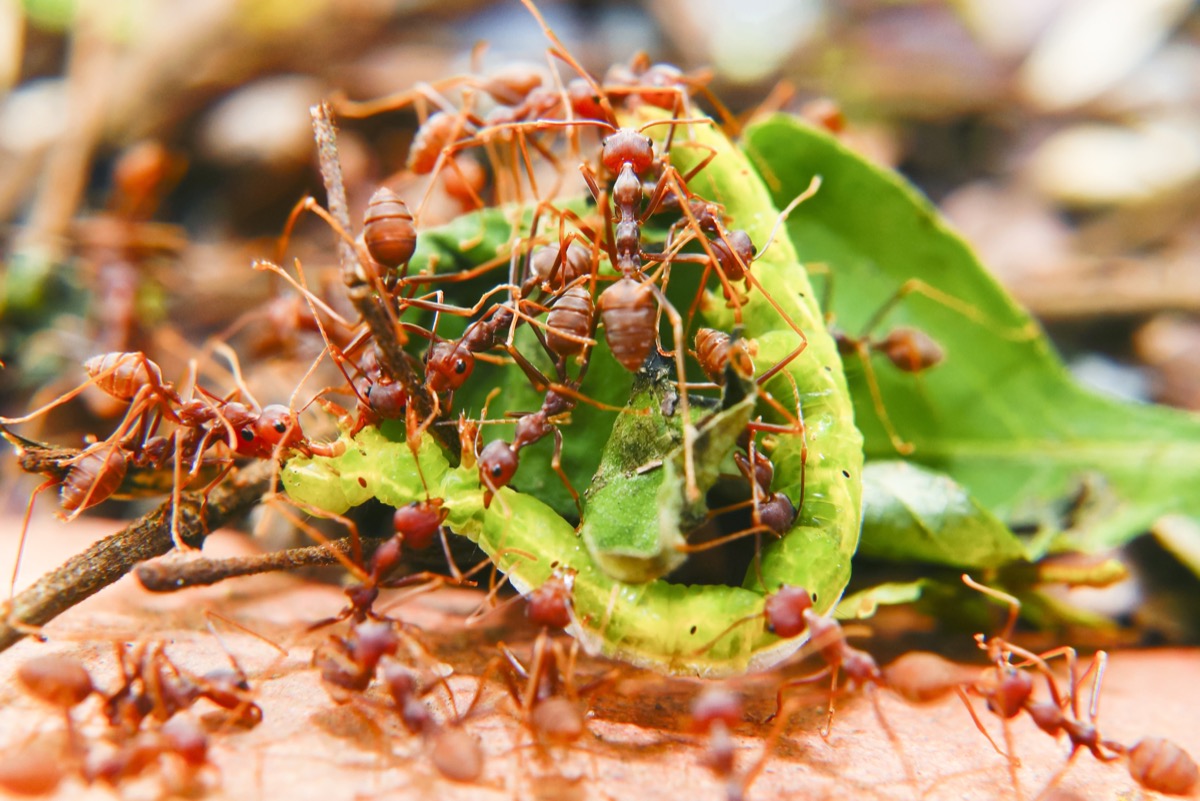RELATED: If You See This Bug, Crush It Immediately, USDA Says. The Southwest Times Record reports that 43 counties in Arkansas are now subject to federal quarantine regulations due to the spread of fire ants within the state, with four new counties added to the quarantine zone in the last week alone. To limit the spread of fire ants—both to Arkansas counties outside the quarantine zone and other states—the state is now limiting the transport of materials including soil, sod, nursery stock with soil or potting media, baled straw that has been stored in contact with soil, baled hay that has been stored in contact with soil, or used soil-moving equipment. For the latest safety news delivered straight to your inbox, sign up for our daily newsletter! It’s not Arkansas alone that is going into quarantine to limit the spread of these pests and their painful stings.ae0fcc31ae342fd3a1346ebb1f342fcb According to the United States Department of Agriculture (USDA), in addition to Arkansas, the list of states with areas subject to federal quarantine now includes Alabama, California, Florida, Louisiana, New Mexico, North Carolina, Oklahoma, Tennessee, Texas, South Carolina, and Virginia. Black and red fire ants were likely brought to the U.S. via soil used as stabilizing material on cargo ships that launched from destinations in South America in 1918 and the 1930s, respectively. Today, there are five times as many fire ants per acre on U.S. soil as there are in South America, according to the Centers for Disease Control and Prevention (CDC). According to the American College of Allergy, Asthma & Immunology, fire ant stings most often result in itchy, localized swelling that subsides within an hour and results in a pus-filled blister that may scar. However, the USDA reports that, in rare cases, fire ant stings can result in anaphylactic shock, a rare allergic reaction that can cause difficulty breathing, unconsciousness, or even death. If you happen upon fire ants, following specific steps can help reduce your risk of a severe reaction. The CDC recommends brushing off the ants if you notice them on you and taking antihistamines if you have been bitten. If you experience difficulty breathing, extreme swelling, intense sweating, nausea, severe chest pain, or slurred speech, go to the emergency room immediately. RELATED: If You See This Bug, Never Touch It Without Gloves & a Mask, Experts Warn.



